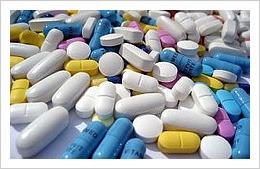 Professor Marc-Andre Gagnon investigates how the innovation system in the pharmaceutical sector is broken. In the last 15 years, fewer new drugs have arrived on the market, and the vast majority of them do not represent any therapeutic advancement as compared to what already exist. However, promotional expenditures surged during that period and, according to dominant pharmaceutical companies' annual reports, they are gaining record profits in spite of the lack of therapeutic innovation. This paradox can be explained if we consider the hypothesis that their main business model is the aggressive promotion of me-too drugs. But what does that mean exactly? If this hypothesis is correct, it means that the profit-motive is not encouraging the development of new drugs. A growing amount of evidences shows, instead, that pharmaceutical companies are trying to re-shape medical knowledge according to their interest in a way that corrupts evidence-based medicine through unethical corporate strategies like ghostwriting, illegal promotion and conflicts of interests. The question before us is thus to understand if the profit-motive is embedded in a market structure encouraging unethical practices instead of innovative therapeutics. And if it is the case, what could be done to re-organize the market structure in order to have a profit-motive serving the interests of patients as well. How can we reconcile pharmaceutical profits and public health?
Professor Marc-Andre Gagnon investigates how the innovation system in the pharmaceutical sector is broken. In the last 15 years, fewer new drugs have arrived on the market, and the vast majority of them do not represent any therapeutic advancement as compared to what already exist. However, promotional expenditures surged during that period and, according to dominant pharmaceutical companies' annual reports, they are gaining record profits in spite of the lack of therapeutic innovation. This paradox can be explained if we consider the hypothesis that their main business model is the aggressive promotion of me-too drugs. But what does that mean exactly? If this hypothesis is correct, it means that the profit-motive is not encouraging the development of new drugs. A growing amount of evidences shows, instead, that pharmaceutical companies are trying to re-shape medical knowledge according to their interest in a way that corrupts evidence-based medicine through unethical corporate strategies like ghostwriting, illegal promotion and conflicts of interests. The question before us is thus to understand if the profit-motive is embedded in a market structure encouraging unethical practices instead of innovative therapeutics. And if it is the case, what could be done to re-organize the market structure in order to have a profit-motive serving the interests of patients as well. How can we reconcile pharmaceutical profits and public health?
Attribution: http://www.flickr.com/photos/rmgimages/4882443448/
